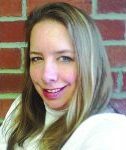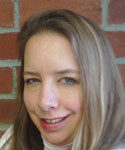By Douglas Peck
Who do you think of when you hear the word “caregiver”? A doctor? A nurse? A Red Cross or disaster aid worker? For most of this century we have tended to think of caregiving as a profession, an occupation that people with certain talents and inclinations choose as their life’s work.
That is all beginning to change very quickly and in the next few years more people who never imagined themselves as caregivers are going to assume that role whether they want to or not. The two key factors affecting this are well known. The good news part is that everyone is living longer than ever before. The not so good news is that this is also the fasted growing segment of the population
One of the more far-reaching effects is to turn more of us into caregivers — often for our spouses or for elderly parents. It’s just something we are going to have to do, in addition to our regular jobs, and regardless of whether we believe we have the talent or inclination for it.
It was certainly a role I was ill prepared for when I stepped in to help my mother when my father passed away. She was relatively self-sufficient, which helped the transition, but I was not initially prepared to even think about taking care of an elderly parent. More than just going over to do the necessary chores to maintain the house she was living in alone (she had no intention of moving after 50+ years in the same home) was having to act as a caregiver for a parent. This is a major role reversal that often comes at the same time as a personal crisis, the death of a parent, or a major medical event.
There are three key points that we all need to recognize:
•Having to provide care to an elderly parent is becoming more and more the norm for everyone — not just daughters.
•Most people are not prepared to take on the role as primary caregiver.
•Most seniors don’t want to be put in the position of having someone take care of them.
There are many personal and family dynamics at work that can make life very interesting. If there is one thing to remember in all of this, everyone can learn to be a caregiver. It may be like a muscle that hasn’t been exercised before, so the initial flexing can be a bit painful at times, but the more you do it, the stronger it becomes. And, like any exercise done over time, it will change you for the better. You will find inner strength that you never knew you had. And it can deepen the relationship you have with the person you are giving the care to.
It won’t always be easy and often it will stress you out because it is like running a marathon, not a sprint. Ultimately, it will give you a deeper understanding of who you are as a person. Just remember, it is always ok for the caregiver to ask for help themselves. This is not a journey you should take alone.
Douglas Peck, CSA, is owner of Seniors Helping Seniors, in Southborough. He can be reached at 508-485-1765. Visit their website at www.seniorshelpingseniors.com/metrowest. Archives of articles from previous issues can be read on fiftyplusadvocate.com.












